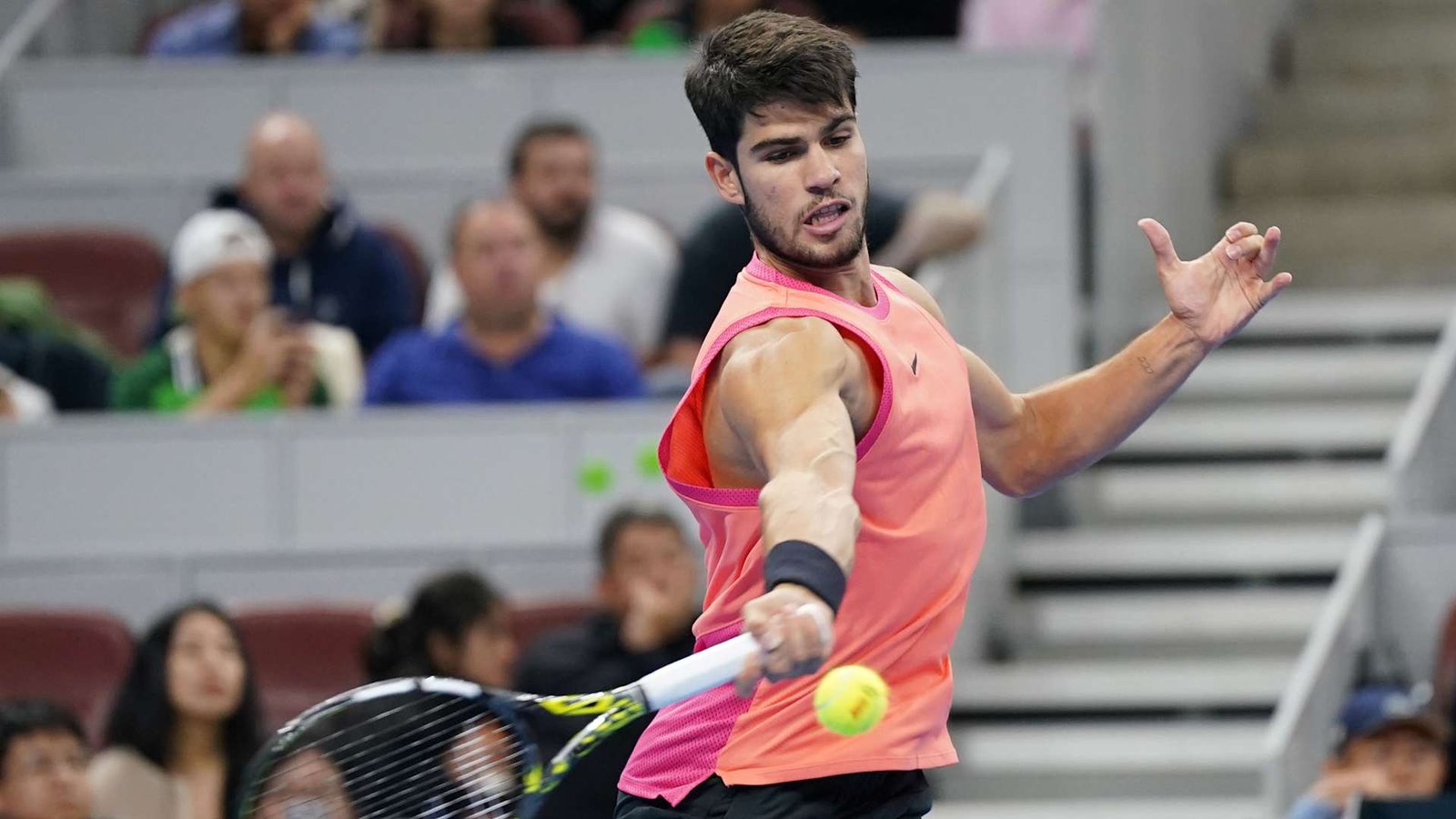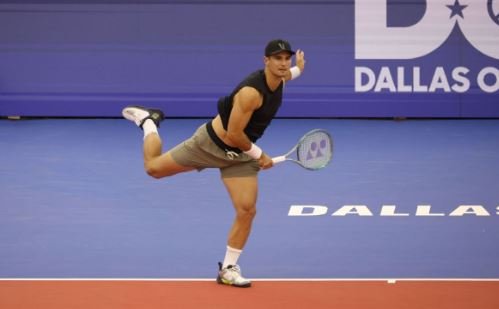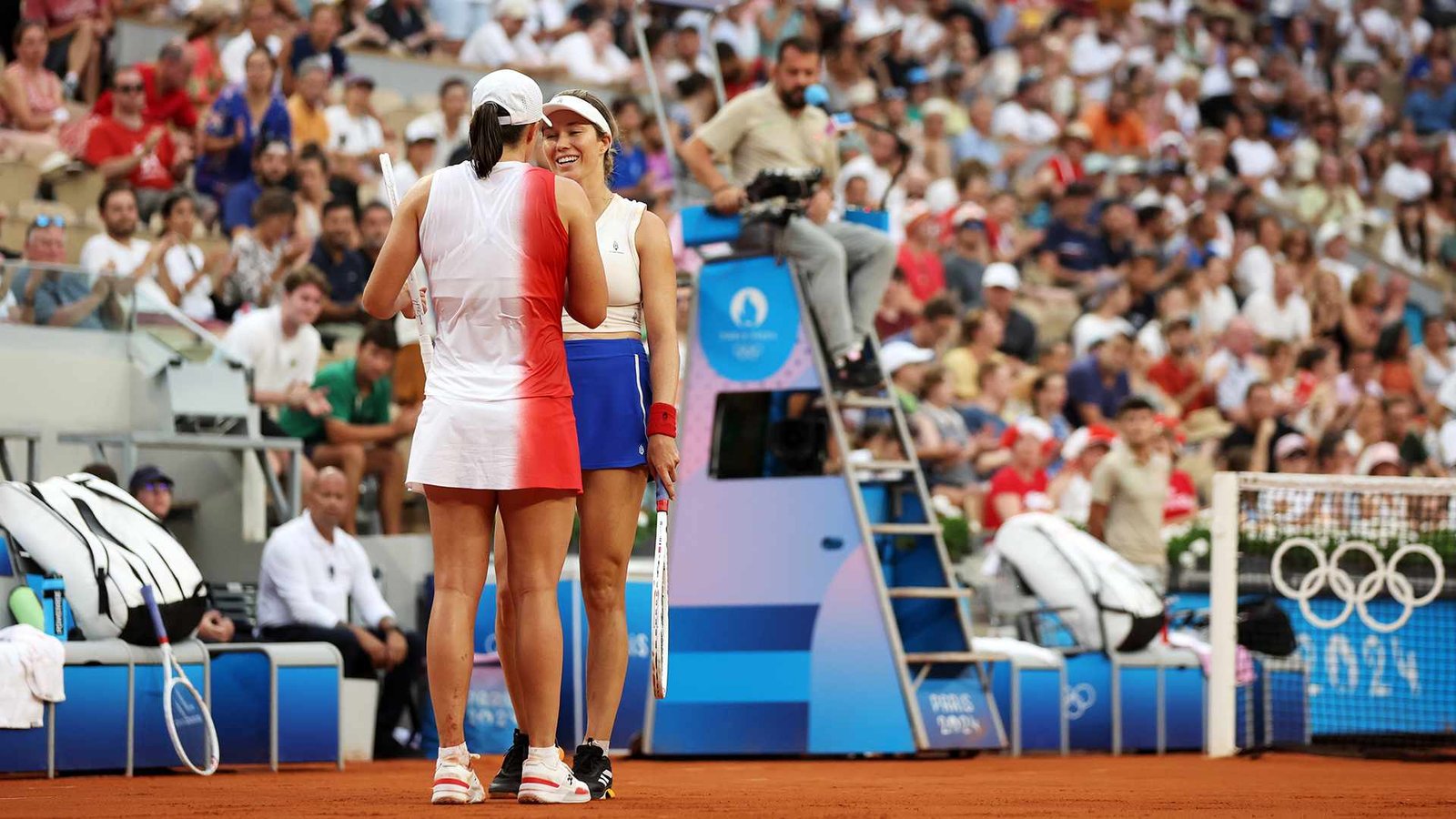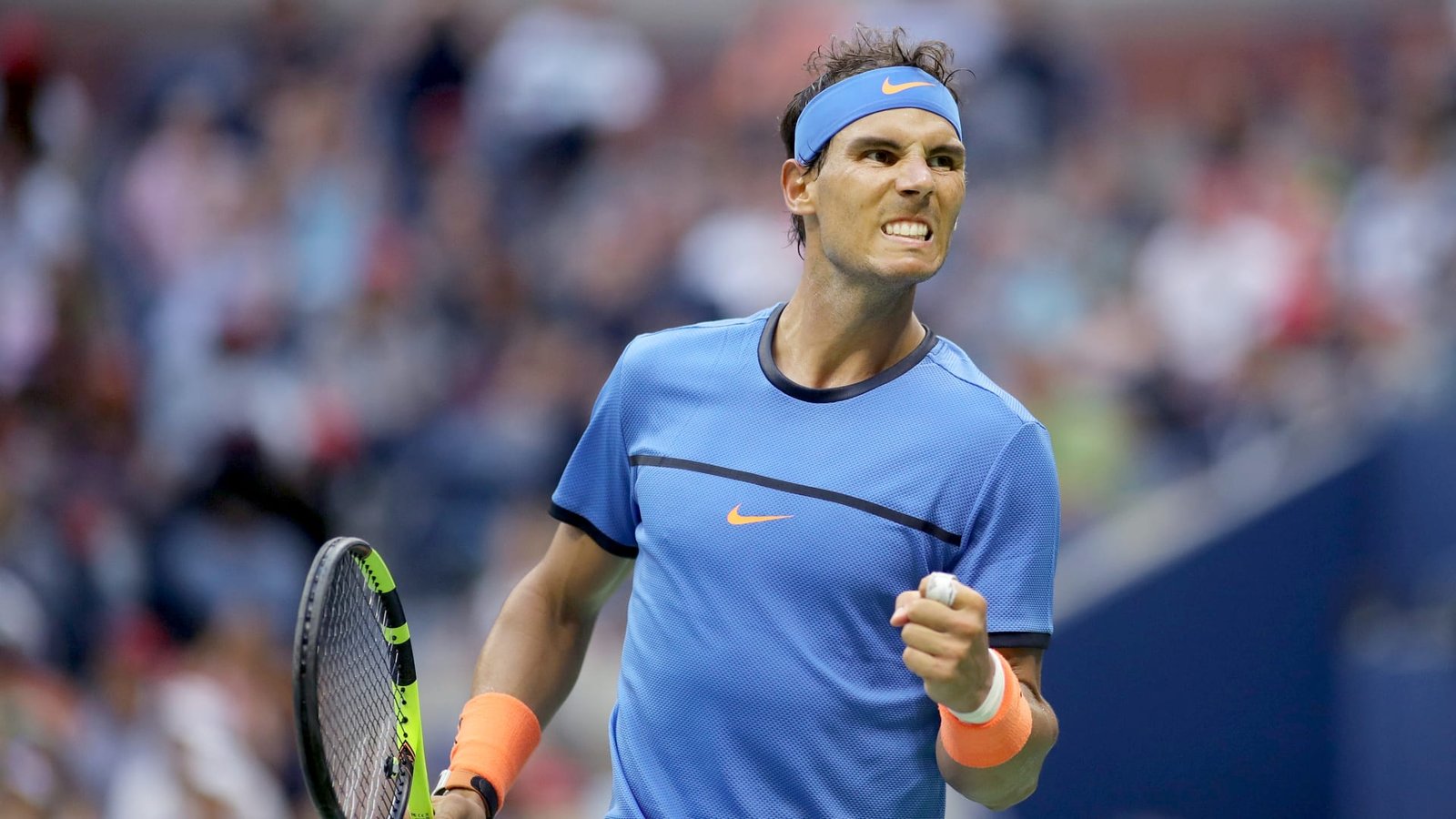Dominic Thiem, the Austrian tennis star, has concluded his illustrious Grand Slam career at the US Open, a tournament that once brought him his greatest triumph.
When Dominic Thiem took the court at the US Open on August 26, 2024, he ended his ten-year run in this esteemed competition. His last big match took place at the same location where he reached the peak of his career in 2020. Even though things had changed since then, Thiem was content with his choice and thankful for the memories.
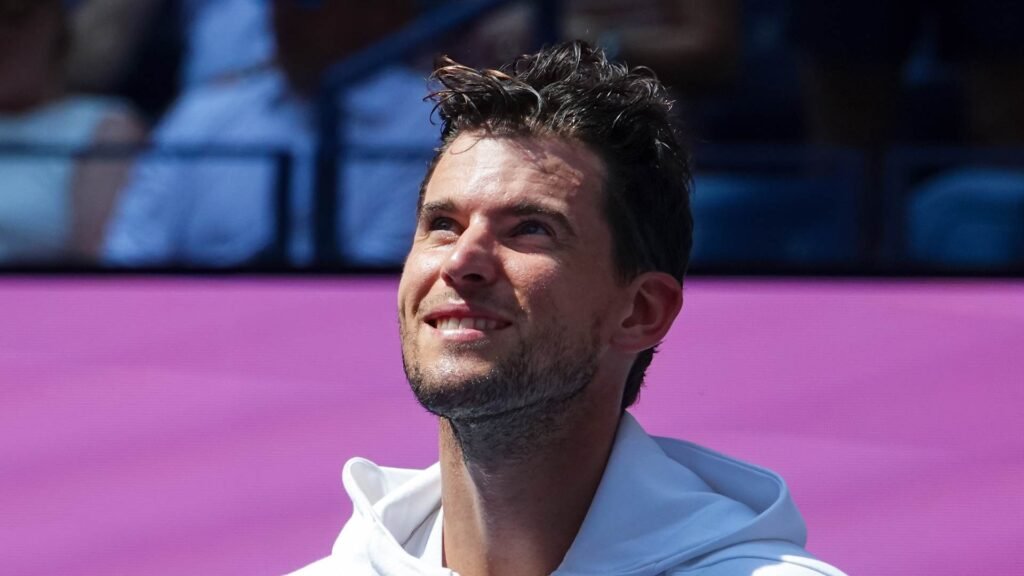
The biggest sounds in the massive Arthur Ashe Stadium (the roof was closed) during Thiem’s match against Alexander Zverev in 2020, when Gotham was under the influence of the Covid pandemic and its accompanying restrictions, were the sound of sneakers squeaking on rubberized asphalt, the line judges’ echoey calls, and the unrelenting thrumming of the enormous climate-control system.
Thiem played the last Grand Slam match of his illustrious career on Monday on Ashe in front of a vibrant, boisterous, and sun-drenched audience. Despite Thiem’s defeat in straight sets against the youthful American sensation Ben Shelton—who looked like a rocket launcher in his red, blue, and white outfit—he was happy to have the chance to settle some outstanding issues.
In a unique on-court interview following the match, Thiem reminded the audience, “I had my greatest success here on this court in the weird year of 2020.” “It wouldn’t have happened without any of you. I am so grateful that I got to play my final US Open match on this court and spend time with all of you. That was an incredible and heartbreaking moment for me.
At just thirty years old, Thiem is leaving for an unknown destination. Although he wants to continue playing tennis, he has a strong interest in environmental sustainability projects. The fact that many comparable elite players—like Novak Djokovic, Gael Monfils, and Stan Wawrinka—are considerably older is making us reevaluate the notion of traditional expiration dates. However, Thiem is a distinct man with a unique backstory.
Thiem’s serve appears to be one of the more graceful moves in the game to the untrained eye since it is economical, fluid, and flawless. Even now, you could practically feel the force of his forehand clenching in your molars. Furthermore, his hallmark, a one-handed backhand, is still recognizable even though it is no longer unflappable. He throws his entire body into it, giving off the impression that he has just been shot when he opens up.
However, Thiem is lacking something essential. Since immediately after his historic five-set victory over Zverev four years ago, it has vanished. On that day, Thiem became the first male since 1949 to overcome a two-set deficit in the US Open final. It was the first championship match to be decided in a fifth set of ties.
It was an odd and ultimately expensive present, if the trophy indeed came from the tennis gods. When Rafael Nadal and Roger Federer decided not to participate in the oddball event, two significant barriers were removed. Next, Novak Djokovic was defaulted after hitting a linesman in the throat by mistake with a ball that was blasted in a fit of rage. At the moment, Thiem held the third position. It seemed suddenly like he had the title to lose. The strain proved to be unbearable.
Thiem recently said to The Athletic, “Maybe it’s less pressure to face the greatest players of all time.” “I had to win (under those conditions) because it was the US Open, and that was really difficult.”
It was so difficult that Thiem abruptly lost all drive after sealing his first major final in four attempts. After the Grand Slam monkey was off his back, he was left wondering, “Is that all there is?” rather than feeling excited about the future.
In hindsight, Thiem acknowledged that in order to be “in the zone,” where he could perform at his best, he need the stress and pressure.
Nevertheless, Thiem was gradually rediscovering his love for the game by the spring of 2021. However, his outcomes were remarkably inconsistent. Then in the summer, he sustained a major injury to his right wrist, causing him to cancel the rest of his bounce-back year. He’s never been the same, and his understanding still isn’t crystal clear.
“I feel like the injury happened once I was back in a really good mental state,” he stated. After that, the sensation never returned, particularly on the forehand. Naturally, as a result of that, I was also having a lot of mental difficulties because those two aspects of one’s being—mental and physical—always interact.
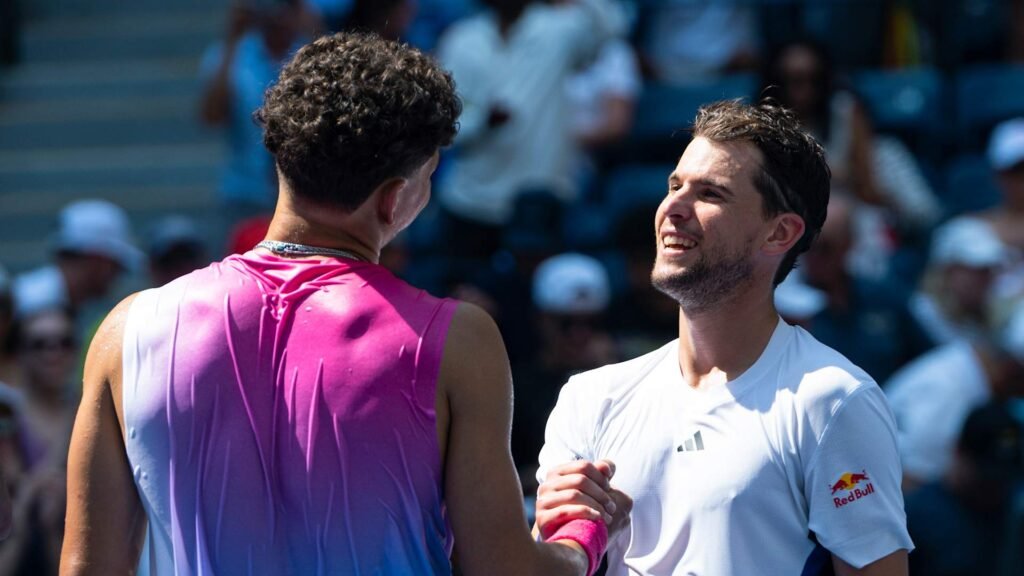
Though it was undoubtedly a difficult journey, Thiem merited every honor that came his way. Eleven years ago, he entered the spotlight with the eagerness of a one-year-old labrador retriever: he was incredibly athletic, floppy-limbed, and quick. Like a plethora of his predecessors, he was unfortunate enough to find his footing as the game’s Big Three were putting all comers under the boot. However, Thiem frequently delivered as good as he got.
Thiem was the only player in a generation led by the Big Three to win a major championship until Daniil Medvedev arrived. Given the circumstances, the 2020 victory may come with an asterisk, but he participated in three previous major finals. He had an amazing 16-19 win-lost record in 35 encounters with the Big Three, including five victories in seven attempts against Federer.
At Roland Garros, Thiem triumphed over Djokovic twice. However, from 2017 to 2019, he faced 14-time champion Rafael Nadal in three consecutive years, including back-to-back finals. Prior to his victory in New York, he had his best chance at a major in the Australian Open early that year. He won two sets to one against Djokovic, who is now a 10-time Australian champion, and in the fourth set he held a break to take the lead. Thiem lost 6-4 in the fifth set after failing to convert.
Under the harsh supervision of taskmaster Gunter Bresnik, Thiem gained notoriety for his diligent work ethic. The demands of Thiem’s training and competition schedule during his early years—he participated in 29 events in 2015, 13 more than world No. 1 Djokovic at year’s end—later contributed to his split from Bresnik in 2019. The 2004 Olympic gold medallist Nicolas Massu guided Thiem to his best finish.
Thiem admitted he was spinning his wheels at the beginning of this year. He declared on social media in April that he will be retiring soon, saying, “I’m not the player of 2020 anymore.” My wrist no longer gives me the strength it once did, so I have to live with the situation as it is.
Thiem found liberation in his decision to retire, stating that he is now “happy” because he had been through enough hardship in the previous four years attempting to relive the magic. “I was happy with my decision from the moment I made it this year in March.”
Thiem is content with who he is. He turned to face Shelton, unaffected by past experiences or wandering thoughts, and remarked, “I was able to focus pretty well on the match.” I was attempting to accomplish the same thing. Naturally, though, things were a little different. I made an effort to have fun. I made a sincere effort to savor every second spent in this stadium. It was rather pleasant.
Even though Thiem is excited to pursue new activities and lead a more settled life, he is also relinquishing something that he views as unique and priceless.
After giving it some thought, he declared, “The feeling after winning a great match is what I will miss the most.” It just can’t be compared to anything else. It’s a tremendous high, the kind of sensation you don’t really have in life outside of tennis.
“This is also the one I’m going to miss the most, because I know that this feeling is probably not going to return.”

